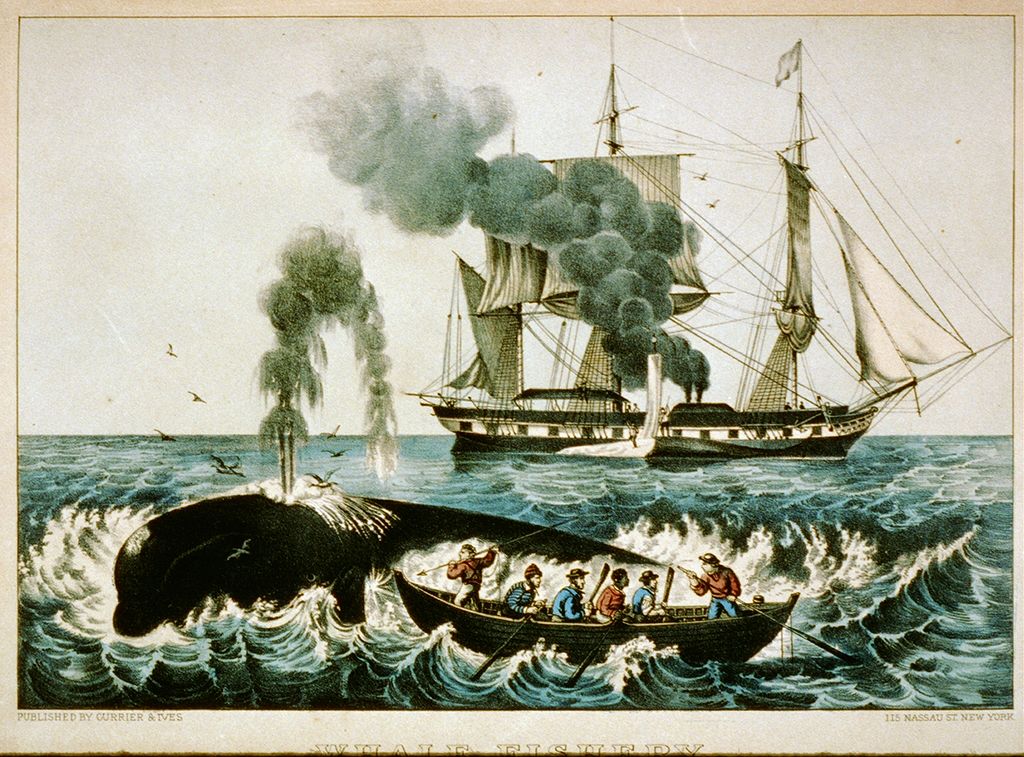Greenland Whale Fishery
Anonymous, 18th century |

 |
Why was whaling such a profitable venture in the early 1800s? Huge demand for whale oil for lighting and lubrication in developing industries. What other products came from whales or whale oil? |
 |
From the song, what does it sound like the method was for catching a whale? Look up "whaling" and check to see if your theory about nineteenth-century whaling is correct. Smaller six-men rowboats were launched from the larger sailing ship to pursue a whale with harpoons on a rope. |
 |
What do they mean by "100 barrel whale"? A hundred barrels of what? Blubber to be refined into whale oil. |
 |
What does the sixth verse mean? The captain is sorry to lose the men, but sorrier to lose the whale. Do you think it is serious? Why or why not? What does it tell you about the value of whales and the value of human life? |
 |
What happened in 1859 that put an end to the need for whale oil for most uses? Edwin Drake first found a method to extract large quantities of oil from the earth in 1859 at Titusville, PA; kerosene could be extracted for lighting. |
|

"Greenland Whale Fisheries," performed by Stuart Gillespie on Classic Maritime Music, Smithsonian Folkways, © 2004. Available on iTunes, Spotify, and YouTube.
This performance features a solo voice with accordion accompaniment, which is one way it may have been performed on a ship.. The compilation on which this track may be found is full of other classic seafaring songs by a variety of noted performers. |

View the music and lyrics for "Greenland Whale Fishery." |
|

Little is known about this traditional whaling song. It is said to have originated in the British, not the American, whaling trade, probably in the latter part of the eighteenth century. In the early British versions, the ship's name, the Lion, and the captain's name, Speedicutt, are both preserved. It is still sung in Norfolk, England.
During this era, demand for whale oil increased dramatically. It was a cleaner, brighter lighting fuel than candles. Until the discovery of large fields of oil at the end of this era (1859 at Drake's Well, Titusville, PA), whale oil was used as a lubricant in the growing number of mechanical devices being developed.

"The Whale Fishery" by Currier & Ives. |

Research the recent history of whaling. What happened to the whale populations as a result of intense whaling in the 1700–1800s? Some species nearly went extinct. What has happened to whaling since then? International treaties limited, then outlawed, commercial whaling. Where and how is whaling still practiced? What is your position on continued whaling? What do you think should be done to enforce or change the law? |
|


